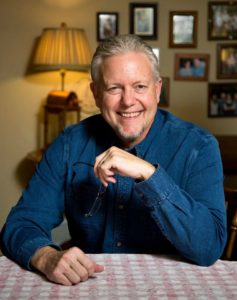“I don’t judge.” Really?!
Everyone does. We just don’t admit it.
Watch our Truth in Two to find out the real issue (full text below).

Subscribe to MarkEckel.com (here). Find the MarkEckel.com YouTube Channel (here). Mark is President of The Comenius Institute (website). Dr. Eckel spends time with Christian young people in public university (1 minute video), teaching at Indiana University Purdue University at Indianapolis, and interprets culture from a Christian vantage point (1 minute video). Consider becoming a Comenius patron (here).
Picture Credit: Luke Renoe, Snappy Goat
FULL TEXT
Who am I to judge? You have heard the question many times. You have probably uttered the phrase yourself a time or two. But why do we say, “Who am I to judge?” We judge all the time! We judge people’s attitudes and actions. We judge political sentiments. We judge polls, approving or disapproving with everyone else. We judge good and bad outcomes of everything. Jesus even teaches that judging is important; being able to distinguish between good and bad fruit in Matthew 7.
So how can we say, “Who am I to judge?” A century ago, the term “nonjudgmentalism” came into play. Parental advice books encouraged giving children room for development. Supporting children’s growth then became a character trait; being “nonjudgmental” was sought by therapists. Social workers took twisted the act of judging to mean something dangerous to children. Then came Erich Fromm in his famous 1941 book Escape from Freedom. Fromm declared moral authority was outdated.
The word “judging” became “authoritarianism” where authority was oppressive. Philosopher Julian Huxley attacked authority further by suggesting authorities inflicted a burden of guilt. Huxley then condemned absolutes from the Bible; Christians were supposed not open to new knowledge. Then came Brock Chisholm from the World Health Organization in 1946 who believed people had to be “reeducated to reject their old-fashioned moral outlook.” It was not long before psychologists and social scientists questioned church leaders as having “fascist personalities.” Now we judge by simply labeling people as fascists without even knowing what the word means or where it came from.
Some of you may be judging my words right now. And I applaud you. You should judge my words and the words of anyone who has some authority. Don’t be fooled. We all judge. Judgment depends on whatever you are using as your source of authority.
For Truth in Two, this is Dr. Mark Eckel, personally seeking truth wherever it’s found.
NOTE: the ideas in the middle section of this Truth in Two are derived in part from Frank Furedi in his essay “The Diseasing of Judgment,” First Things, January 2021, pp. 31-36.


